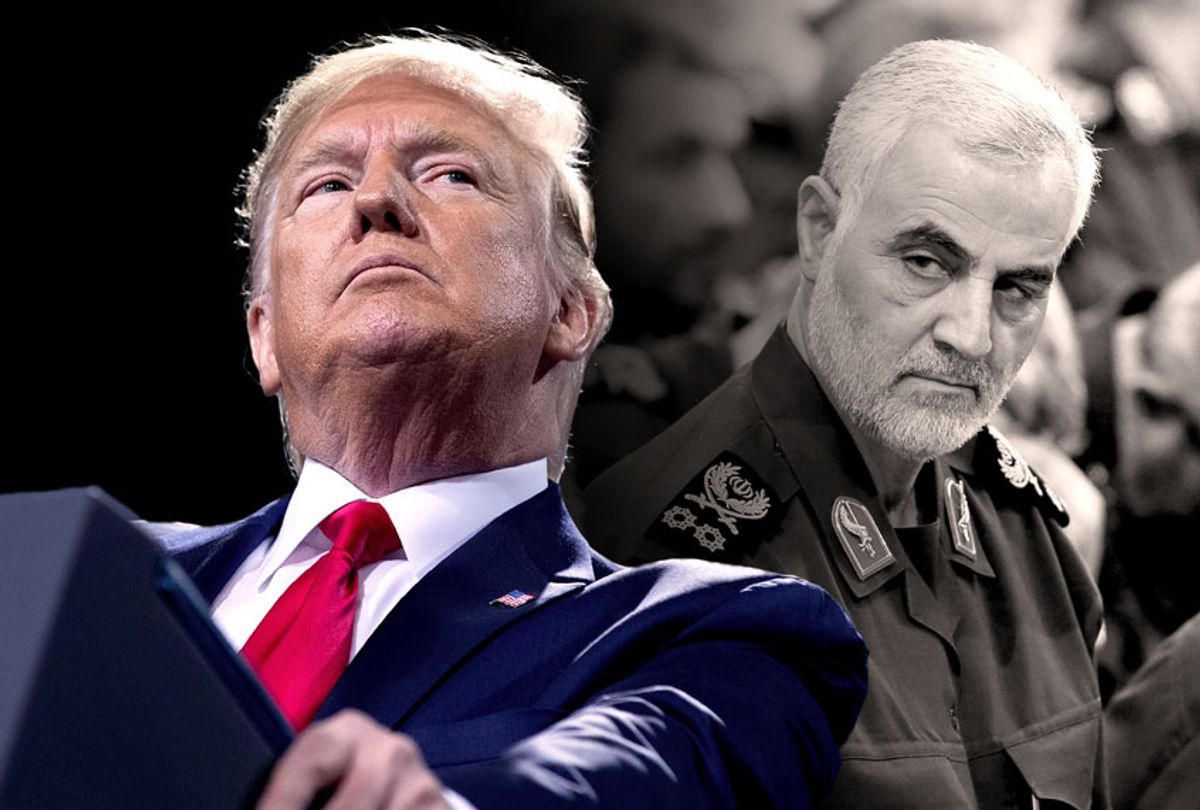President Donald Trump privately told associates that his upcoming impeachment trial factored heavily into his decision to kill top Iranian General Qassem Soleimani, The Wall Street Journal reports.
“Trump, after the strike, told associates he was under pressure to deal with Gen. Soleimani from GOP senators he views as important supporters in his coming impeachment trial in the Senate,” associates of the president told the outlet.
The revelation, buried deep into a lengthy piece about the strike, follows a similar report from The New York Times.
“Trump pointed out to one person who spoke to him on the phone last week that he had been pressured to take a harder line on Iran by some Republican senators whose support he needs now more than ever amid an impeachment battle,” The Times reported Tuesday.
The operation was “planned very quickly,” a U.S. official told The Journal. There was not “unanimity” among Trump’s advisers about the “wisdom” of targeting Soleimani, but intelligence suggested that he planned more attacks on American troops in the region.
Secretary of State Mike Pompeo later claimed that the strike prevented an “imminent attack.” Trump on Thursday told supporters at a rally in Ohio that Soleimani “was looking very seriously at our embassies.”
Pompeo again claimed that “there is no doubt there were a series of imminent attacks that were being plotted” by Soleimani during a Thursday interview with Fox News.
But he added, "We don't know precisely when, and we don't know precisely where, but it was real."
Vice President Mike Pence appeared to break with the administration’s line on the attack while speaking at Trump’s Thursday rally, arguing that the strike was actually a response to an attack by an Iranian-backed Iraqi militia, which killed an American contractor.
"When one American life was lost at the hands of Iranian-backed militias just a few short weeks ago, President Trump launched the first air strikes against Iranian-backed militias in 10 years,” Pence claimed.
Democrats have called the administration’s justification for the strike into question after Pompeo and other administration officials briefed Congress about the operation Wednesday.
“I’m not convinced, based on what I heard, that the measure taken matched the threat,” House Homeland Security Chairman Bennie Thompson, D-Miss., told Politico.
“I was utterly unpersuaded about any evidence about the imminence of a threat that was new or compelling,” Rep. Gerry Connoly, D-Va., said.
Rep. Anthony Brown, D-Md., added that “the actions that were taken was much more a response to the past conduct of General Soleimani.”
House Foreign Affairs Chairman Eliot Engel, D-N.Y., suggested that Pompeo could be subpoenaed for his testimony if he does not agree to testify voluntarily next week.
“If there is evidence there, we have not seen it,” Rep. Pramila Jayapal, the co-chair of the House Progressive Caucus, said at a Wednesday news conference. “[President Trump] had no evidence of an imminent attack, and we say that coming from a classified briefing, where again, there was no raw evidence presented that there was an imminent threat.”
House Democrats voted Thursday to limit Trump’s ability to wage military action against Iran without Congressional approval, though Republicans in the Senate say the measure is non-binding and largely symbolic.
Presidential candidate Sen. Elizabeth Warren, D-Mass., said The Wall Street Journal report “confirms” her suspicions about the strike.
“Trump is taking us to the edge of war for his own political benefit,” she wrote. “It’s reckless and dangerous.”



Shares